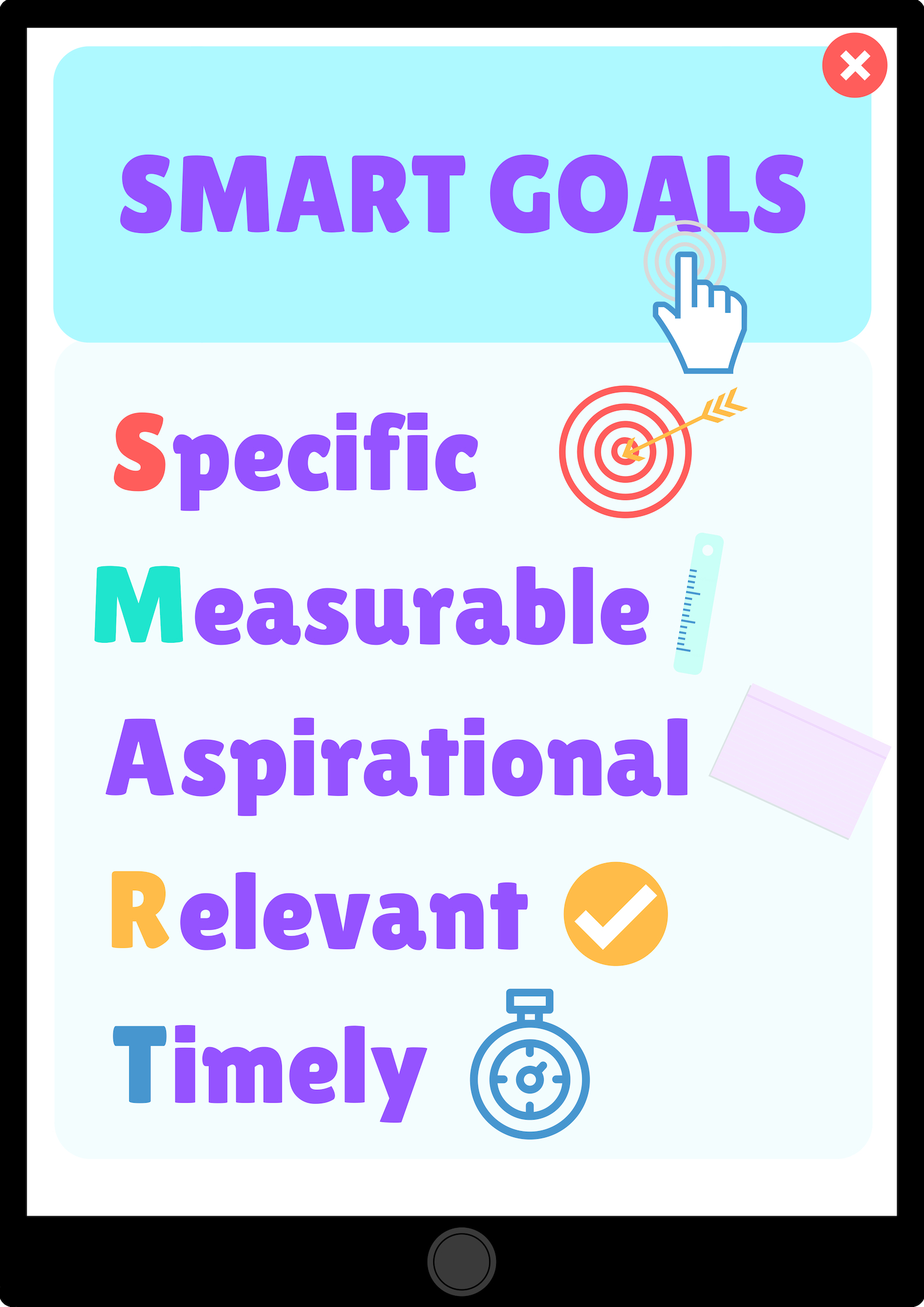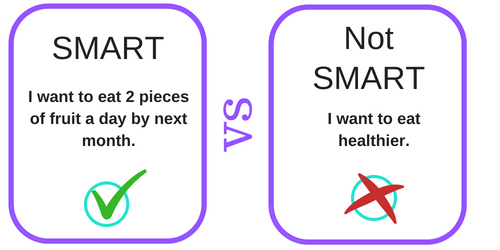Chapter 4
Setting Smart Goals
Okay, so we’ve covered getting your mind right, productivity hacks, and your SAWA. But there’s one question that you may still have: How do I know I’m getting anywhere? And how do I discover the rate I’m learning at?
The answer to that is simple. Set a SMART Goal.
SMART is an acronym that stands for Specific, Measurable, Aspirational, Relevant, and Timely.

Here are some things to keep in mind during your goal-setting.
When you set your goal, make sure that it’s something that you want to do, be, and experience. And make sure it isn’t too broad (that it’s Specific)—that way, it will be easy for you to tell whether you’re growing or not.
Find a way to “check in” and see how fast your growth is. Meaning, make sure it is significant (Measurable), and that it challenges you enough.
Next, choose to pursue something that you believe will make you a better version of your current self (Aspirational), and ensure that it relates to something you want to improve on right now (Relevant).
Lastly, the due date you set must be a date that is reasonable and doable (Timely), even if you don’t yet know how to achieve the goal itself.
My mother says there are three types of goals we can set:
- A
goals : goals you already know how to achieve. - B goals: goals you think can be achieved with just a little work.
- C goals: goals that really fire you up and thrill you even if you don’t know how to actually make them happen.
Pretty
But you also want to make sure that whichever goal you choose to set, you do it right. Take a look at the comparisons of these two goals:

Why is the first goal a SMART goal? Let’s analyze it:
Specific – what is the goal focused on?
Eating more fruits (vs. eating healthier).
Measurable – how can you measure your progress in this goal?
You can start small by eating 1 piece of fruit 5 days a week, and then gradually progress to eating 1 piece of fruit 7 days a week, and eventually double the fruit pieces by 2.
Aspirational – is this goal challenging?
Relevant – is this goal relevant to a bigger aspiration?
This is relevant because it is a step further toward eating healthier.
Timely – when is the due date? Is it a reasonable amount of time?
The due date is next month. The goal gives a reasonable amount of time to get into the habit of regulary eating 2 pieces of fruit.
Now that you have a SMART goal example, reflect on some goals you would like to set for yourself based on what you wrote down in Chapter
If you don’t know what some good goals to set are, think about how you’re doing now. What was the last grade you got on your math or science test?
Now take that grade, and set a goal for a grade higher.
Example: If you got an 8 on the last test, aim for a 9. Your goal could say, “On my next math [or science] test [remember to write down the date at the end and make it in
If you’re just starting your school year, set some year-long goals, like: “By [end of semester date], I want my overall math grade to be an A.”
From there, break down what the lowest possible score on each assignment and test should be (e.g., 9 or 10) and plan to meet those standards.
To further help you set your goals, you can download this pdf I made for you, print it out and fill it up with your goals.
Download your SMART Goal Sheet
Ready to set some SMART goals to track your progress, and focus on what’s really important to you?
Oh, and one last quick goal setting tip: set rewards for yourself as well.
If (in the example of the sample goal) you ate 1 piece of fruit every day for 5 days without deviating, give yourself a reward—it might be a piece of candy, a cookie, or a 15-minute TV time extension. Giving yourself a reward will help you achieve your goal by connecting something you enjoy with your goal’s completion.
With these tools, tips, and resources, you’re now ready to start mastering school work and life in general.
Ready to Start Mastering Math?
Ready To Master Math and Astrophysics The Simple Way?
Get started on your mastery or ask me a question!
